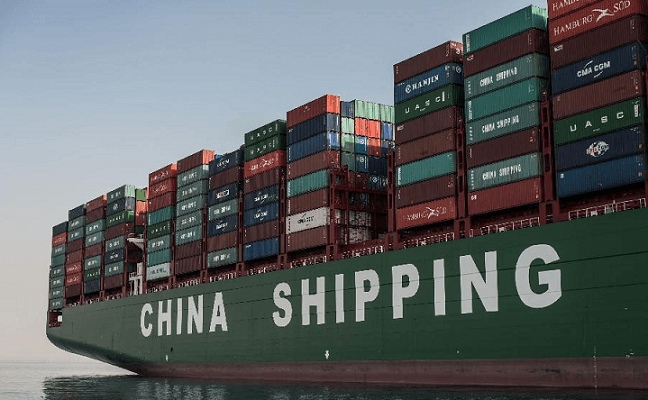Sourcing Alternatives to China for US Importers
In recent years, sourcing alternatives to China has become a major priority for many US importers. Rising production costs, trade tensions, and global supply chain disruptions have encouraged businesses to diversify their sourcing strategies. While China remains a leading manufacturing powerhouse, shifting to new markets can help companies minimize risks, improve profit margins, and ensure greater supply stability.
For businesses exploring reliable global partners, Wigmore Trading offers a trusted solution — connecting importers with high-quality suppliers across Africa, Asia, and beyond.
Why US Importers Are Seeking Alternatives to China
For decades, China dominated global manufacturing due to its vast industrial base, competitive labor costs, and efficient logistics infrastructure. However, recent challenges have changed the sourcing landscape.
Key factors driving the shift include:
-
Rising labor and manufacturing costs: As wages and production expenses increase in China, profit margins shrink for US importers.
-
Tariffs and trade barriers: The US-China trade war has added extra costs and uncertainty to imports.
-
Supply chain disruptions: COVID-19 lockdowns and shipping delays exposed vulnerabilities in over-reliance on one market.
-
Diversification needs: Importers are now building resilience by sourcing from multiple countries.
These realities have prompted US companies to explore alternative sourcing destinations that offer cost-effective production, favorable trade policies, and reliable logistics.
Promising Sourcing Alternatives to China
1. Vietnam: The Emerging Manufacturing Hub
Vietnam has quickly risen as one of the most attractive sourcing alternatives to China. It offers competitive labor costs, political stability, and growing industrial capacity. The country specializes in electronics, textiles, footwear, and furniture manufacturing — all key categories for US importers.
Additionally, Vietnam’s participation in major trade agreements, such as the Comprehensive and Progressive Agreement for Trans-Pacific Partnership (CPTPP), makes exports more accessible to global markets.
2. India: A Strong Competitor with Skilled Labor
India has become a powerful player in global manufacturing, especially in pharmaceuticals, textiles, and automotive components. The Indian government’s “Make in India” initiative has encouraged foreign investment, improved infrastructure, and boosted export-oriented production.
US importers looking for a large, English-speaking workforce and a diverse product base are increasingly turning to India as a sustainable long-term sourcing destination.
3. Mexico: Nearshoring Advantages for the US Market
For American businesses prioritizing speed and lower shipping costs, Mexico provides a strategic sourcing solution. Its proximity to the US allows for faster delivery times, reduced freight expenses, and simpler trade under the USMCA (United States-Mexico-Canada Agreement).
Industries such as automotive, electronics, and consumer goods have seen significant manufacturing growth in Mexico, making it a practical and cost-efficient option.
4. Africa: The Next Frontier for Global Sourcing
Africa’s expanding manufacturing sector offers an exciting opportunity for companies seeking diversified sourcing alternatives to China. Countries like Nigeria, Kenya, and South Africa are emerging as competitive suppliers of agricultural goods, consumer products, and raw materials.
Wigmore Trading, headquartered in Nigeria, plays a key role in this transformation. The company helps international importers access high-quality African products and build stable trade partnerships with vetted manufacturers and exporters.
Through its extensive sourcing network, Wigmore Trading ensures that products meet international standards, helping businesses reduce sourcing risks and maintain cost efficiency.
Benefits of Diversifying Sourcing Markets
Exploring sourcing alternatives to China offers multiple advantages for US importers, including:
-
Cost efficiency: Access to competitive labor and material costs across diverse regions.
-
Risk management: Reduced dependency on a single country’s economy or political climate.
-
Supply chain resilience: Increased flexibility in production and logistics.
-
Access to new markets: Expanding supplier bases in emerging economies.
With Wigmore Trading’s expertise in international trade and logistics, businesses can confidently navigate these new opportunities while ensuring compliance, quality assurance, and smooth shipment processes.
How Wigmore Trading Supports Global Sourcing
As an established import-export specialist, Wigmore Trading assists US importers in sourcing products across Africa and other emerging markets. From agricultural commodities and fast-moving consumer goods (FMCG) to industrial materials, the company bridges the gap between reliable suppliers and international buyers.
Key services include:
-
Product sourcing and quality verification
-
Bulk procurement and wholesale distribution
-
Logistics and export documentation support
-
End-to-end shipping management
By leveraging its deep market knowledge and supplier network, Wigmore Trading helps importers minimize costs, mitigate risks, and maintain consistent product quality.
Conclusion
The global trade environment is evolving, and sourcing alternatives to China has become essential for importers aiming to build stronger, more resilient supply chains. Markets such as Vietnam, India, Mexico, and Africa present viable opportunities for diversification and growth.
With Wigmore Trading’s expertise in international sourcing, logistics, and export management, US importers can seamlessly transition to new supply destinations while maintaining efficiency and reliability.
Contact Wigmore Trading today to explore how we can help streamline your global sourcing strategy.








Comments are closed.